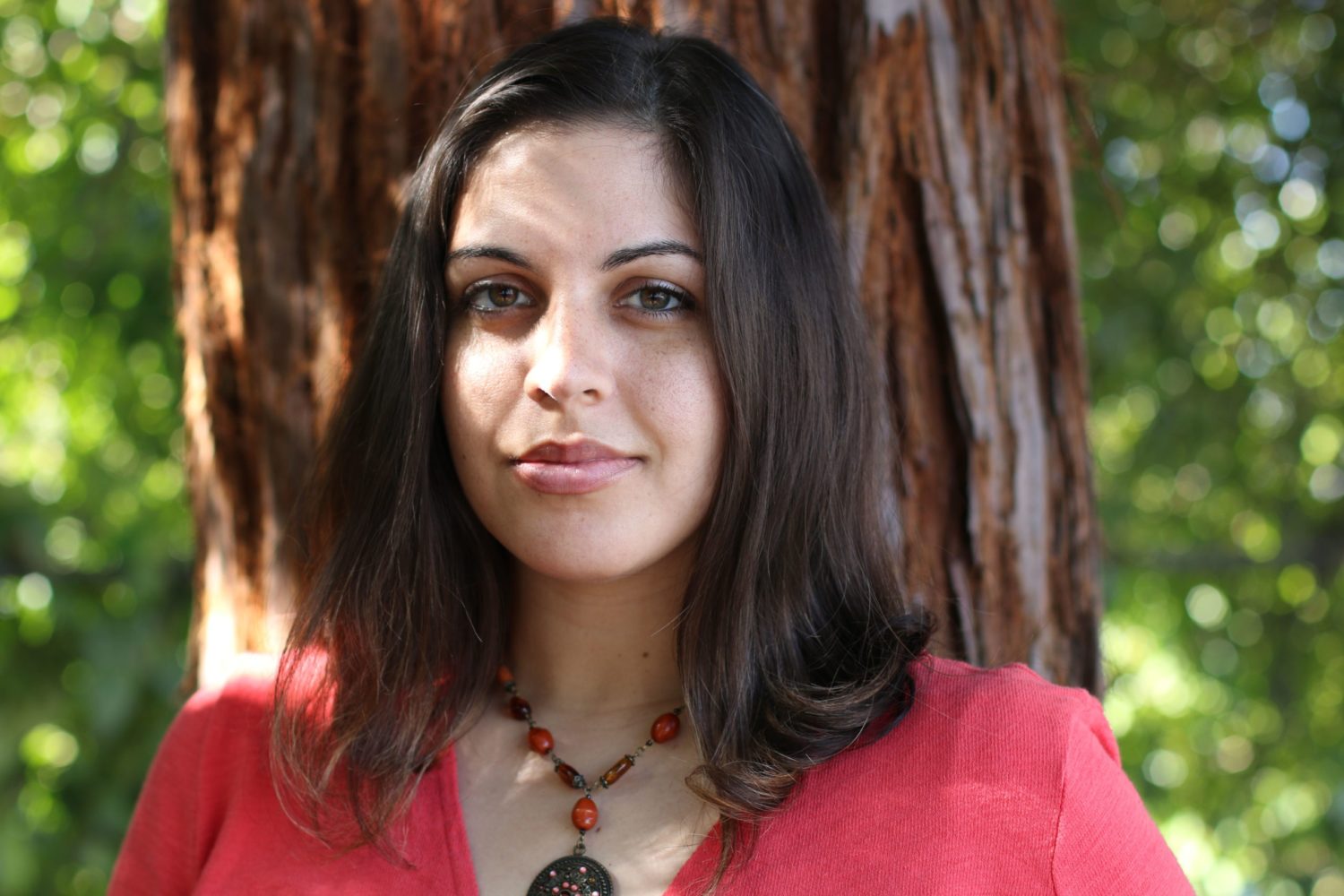 For Nisha Balaram, a second-year documentary film student and this year’s recipient of the Chauncey Bailey Fellowship, pivoting from public policy into filmmaking has married her passion for racial and environmental justice with a desire to share individual triumphs.
For Nisha Balaram, a second-year documentary film student and this year’s recipient of the Chauncey Bailey Fellowship, pivoting from public policy into filmmaking has married her passion for racial and environmental justice with a desire to share individual triumphs.
“It’s a weird privilege,” she said, of her budding career choice. “You’re able to be so intimate with strangers’ lives and, if you’re lucky, contribute to them as well.”
The Chauncey Bailey Graduate Fellowship, established in 2012 by Berkeley Journalism then-lecturer Alan Mutter and his wife Lynn St. Albus, is named for Chauncey Wendell Bailey Jr., the editor of the weekly Oakland Post, who was murdered on Aug. 2, 2007, while reporting on a story regarding the suspicious activities of the Your Black Muslim Bakery.
Balaram said it was an honor to receive a fellowship named for a journalist who served as a voice and role model for the African-American community in Oakland. “The reason why I’m so appreciative of this fellowship is that [Bailey] pursued a community story affecting what he was experiencing locally,” she said.
Balaram identifies as multiracial, her father is Indian and her mother is white. She said her own upbringing in suburban Southern California–“I definitely felt like I stuck out like a sore thumb”–led her to educate herself on issues of racial justice and marginalization. “I learned a lot about the structures of power and privilege that allow people to come here, but also, if they are born here, allow them to flourish,” she said, “and I really wanted to know why things were the way they were.”
After majoring in sociology at Berkeley, Balaram spent time in the public policy sphere. She recalled the fractured connection between people working at the grassroots level and big policy decisions being made in Sacramento. “I was hearing all of these stories that sometimes had triumphs, but I didn’t really see it out in the public consciousness or in the media,” she said. “I wanted more of people’s voices to be heard.”
Balaram’s awareness of the countless individual stories being absorbed by broad economic and social policies cemented her decision to study documentary filmmaking at Berkeley. “It’s not enough to say that these systems are racist and unjust if people don’t believe them or see themselves in them,” she said.
At the J-School, Balaram said she has found inspiration in her “humble and amazing” documentary film professor, Cassandra Herrman. “She really teaches you to approach issues in a sensitive way, and brings a depth of knowledge and experience,” she said.
These days Balaram, who has written about the recycling of bioplastics and San Francisco’s Embarcadero seawall, is training her storytelling lens on boys and men of color, particularly within the African-American community. “But I’m very aware of my role in discussing that,” she said, which is why she is adamant about drawing attention to the individuals who are agents of change within their communities.
For her thesis project, Balaram traveled to Jackson, Miss., to highlight a local program that trains African-American barbers to be mental health counselors for men in their community struggling with depression and suicide. Although she considers herself an outsider, Balaram recalls that entering into another marginalized community was still a challenge.
And she acknowledged having a preconceived narrative of the story she would tell. “I came in thinking I was going to tackle Mississippi poverty, incarceration, and all those statistics it’s known for,” she said. But after receiving a gentle push from the community to highlight their hard work and triumphs while acknowledging systemic problems, she learned an important lesson as a journalist and storyteller. “There’s this community there that has these pillars of resilience,” she said. “If you’re willing to listen to people–and keep an ongoing conversation, and not make the story so transactional–then it will lead to a more fulfilling project,” she said. That sometimes means that even as a filmmaker, Balaram adds, it is necessary to take a backseat and let the film’s subjects, who have graciously let you into their lives, help guide the narrative.
It’s a balance that Balaram admits can be difficult, especially when there is the subject of personal trauma. “You want to give justice to an issue, and you want people to feel how the person felt,” she said. “But how do you do that in a way that doesn’t traumatize the person that you’re really trying to help?”
Balaram says that means unpacking and understanding her own intentions as a filmmaker. “I’m very conscious of coming to a film as a person first, and a filmmaker second,” she said. “I think as long as you’re open and honest with why you’re there, and are willing to critically rethink why you’re there, it works out.”
Balaram is looking at creative ways that she, and other filmmakers and journalists, can interact and give back to the people whose lives they touch. She plans on doing community screenings and discussions of her thesis project in Jackson upon its completion.
As for future stories, Balaram wants to explore the intersection of racial and environmental justice–“environmental justice is racial justice”–as well as mental health and the systems of state violence against people of color. She says that she finds inspiration in her local community in Oakland.
Asked what guides and informs her stories, Balaram said, “For me I’m really interested in reaching people that haven’t been reached.”
By Brett Marsh (‘21)
